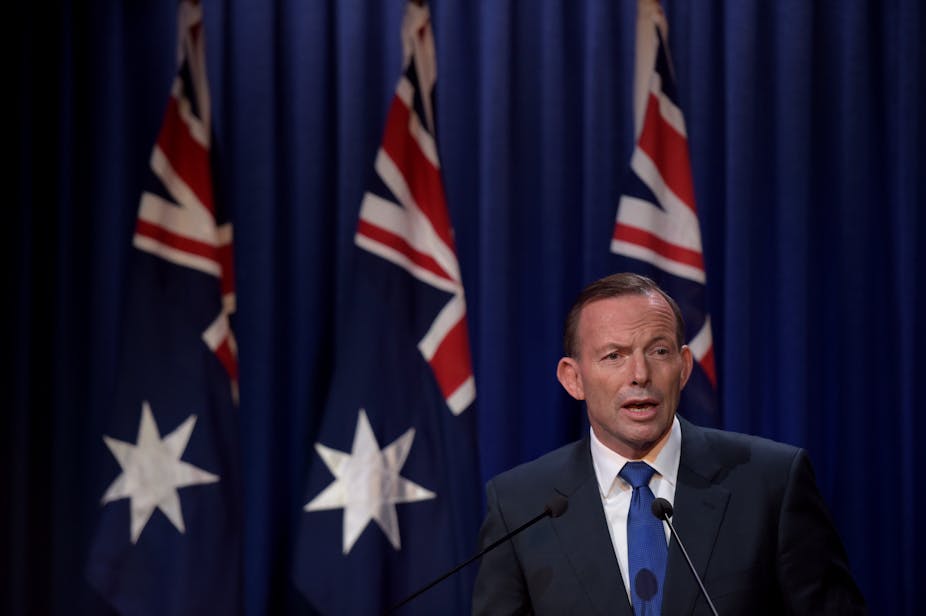The recent shootings in Sydney, Australia, and Ottawa, Canada – and the question of whether they are terrorism-related – have sparked renewed debate about the expanded national security laws and practices of these and other democratic countries.
However, in this debate, leaders have yet to adequately explain why terrorism is more important than other challenges that pose an existential threat to life on earth or that harm more people.
With the political dialogue framed in terms of finding a balance between national security and the rights of citizens, we are at risk of neglecting the bigger picture. The world faces many challenges and threats, of which terrorism is but one.
When evaluating the necessity, proportionality and duration of existing security laws and practices, and whether further measures are needed, citizens and policymakers should keep the following practical and philosophical considerations in mind.
Secrecy and fear hinder informed debate
First, evaluating national security laws and practices requires an open and critical discussion about what most threatens human life and welfare.
Following the attack of September 11, 2001, many countries initially defined terrorism as the main threat to their security. However, in light of recent natural disasters, other risks have increasingly been recognised as threats. And the concept of national security has expanded.
Assessing national security laws and practices also requires access to adequate information about these laws and practices. But such information is often restricted, and such restrictions are not always justified. This has potential negative implications for both security and democracy.
From a security perspective, restricting information makes it harder for citizens to appreciate the unreported successes and benefits of laws and efforts that we may know less about.
From a democracy viewpoint, limiting information obstructs our ability to hold governments accountable. For example, examining whether a particular law or practice is proportional is made difficult because this requires analysing whether other less intrusive measures could have been used to pursue the same objective.
Without adequate information, pursuing such alternatives can too easily be labelled “soft on security” rather than “pro-freedom and rights”.
Leaders err on the side of over-reaction
Finding the correct balance in responding to perceived security threats while protecting fundamental rights is admittedly difficult. The potential consequences of under-reacting or over-reacting to such threats are significant, and both risks should be considered in our assessments.
However, the effects of over-reacting may be less noticeable than the risks of under-reacting, at least initially. This may help explain why the former are sometimes less discussed.
If we have over-reacted, this is likely in part because political leaders have responded to a fearful public and to a domestic and international context that many think is different following the 9/11 attacks. No-one wants to let, or be seen to have let, another 9/11 or Bali bombing happen again.
However, Western leaders have arguably not adequately explained why current anti-terrorism laws and practices, including prolonged and costly wars abroad, are necessary and proportionate to the threat.
Dangerous groups that target civilians, such as Islamic State, are a threat that demands an adequate response. But overall, the world is a safer place today than in the past. Inter-state conflicts and war-related deaths have decreased, while democracy and human rights have increased.

In this context, terrorism does not pose the objective material risk that earlier threats did, such as the rise of fascism before the Second World War. Facing potential invasion by Nazi Germany, Britain sought to “keep calm and carry on”.
By contrast, we do not always see the same measured reaction among Western governments and populations today, even though the terrorist threat is less severe.
Security diverts resources
This lack of congruence between the relatively small material risk of terrorism and the historically unprecedented military, political and legal responses of countries after 9/11 leads some observers to wonder what it is about terrorism that seems to scare us more than other, greater threats to human life and welfare.
As this question implies, the trillions of dollars and collective effort spent on counter-terrorism have opportunity costs. Leaders have not adequately explained why this issue is more important than other significant challenges that often receive comparatively less attention.
Unlike terrorism, climate change actually does pose an existential threat to life as we know it and to the security of every country. Domestic violence against women and children terrorises more people than terrorism, yet the problem often receives less concern.
Finally, leaders have not adequately explained when current anti-terrorist and other expanded security laws and practices will no longer be necessary.
One of the principles of wartime or emergencies in democratic countries is that some rights and freedoms that are normally protected in peacetime can be temporarily suspended or altered until the war or emergency is over. It is unclear that political leaders or the public have adequately thought about how and when we can return to “normal” and reinstate the hard-won rights and freedoms that have been limited or affected up to now.

